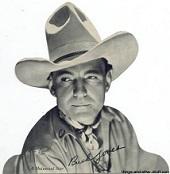- Posts: 10451
- Thank you received: 70
Breaking: Old School Filibuster
- Blazer Bob
-

- Mountain Legend
-

Please Log in or Create an account to join the conversation.
- Arlen
-

- Mountain Legend
-

- Posts: 1548
- Thank you received: 11
Now THAT was a shameful filibuster!
Please Log in or Create an account to join the conversation.
- FredHayek
-
 Topic Author
Topic Author
- Mountain Legend
-

- Posts: 30528
- Thank you received: 179
Arlen wrote: For 14 hours and 13 minutes on June 9 & 10, 1964, the Democratic Senator Robert C. Byrd's individual filibuster of the 1964 civil rights bill is the second longest in history. Only a true believer would ever undertake such an effort. Three-fourths of the “nay” votes against the 1964 civil rights bill were Democrats.
Now THAT was a shameful filibuster!
If only the Republicans had one party rule after WWII, civili rights would have come a lot sooner to this land. The Dems, party of the KKK.
Thomas Sowell: There are no solutions, just trade-offs.
Please Log in or Create an account to join the conversation.
- LadyJazzer
-

- Mountain Legend
-

- Posts: 14880
- Thank you received: 27
God, I love GOTP revisionist-history and hypocrisy, I could sit and watch it for ... minutes...
Civil Rights and the History of Party Platforms. And Ann Coulter.
the Democratic Party was driven by states’ rights and the preservation of slavery as the driving force of its economy. The mere notion of preserving a traditional means of prosperity, no matter how dubious, is inherently conservative. Today, who do we identify with small government, tradition and states’ rights? Conservatives. Conversely, “big government” is a purview of liberalism. Ron Paul, the most conservative member of Congress in the last 80 years, has a stock answer to every policy question he’s asked: “Leave it up to the states.” Conservatives hold sacred the archaic 10th Amendment, which grants state governments all of the powers not specifically enumerated in the Constitution. In 1860 and following the war, supporters of this concept identified with and voted for the Democratic Party.
In the South, party identification became locked down until the Civil Rights Act over 100 years later. Yet the South continued to be marked by conservatism. Yes, there were anti-black racists all across the political spectrum, and this was further cemented by propaganda meant to unite the North and South following the end of Reconstruction. Instead of shooting at each other across the battlefields of Gettysburg and Antietam, political leaders turned freed slaves and their descendants into the common enemy. Whites from Texas to New Hampshire would have something upon which they could agree: black people were the enemies of American society and prosperity.
Throughout the 103 years between the 13th Amendment and the Civil Rights Act, liberal values shifted to the Democratic Party and conservative values shifted to the Republicans. Some Democrats in the South would remain conservative into the 1960s, even though much of the party had shifted to the liberalism of FDR, Kennedy and LBJ. Again, party identification wasn’t necessarily about the platform. The core values of Strom Thurmond’s old school Southern Dixiecrats had nothing in common with Kennedy’s New Frontier. Segregation laws all across the country were simultaneously created, enforced and opposed by both Republicans and Democrats, even though liberals tended to oppose them.
...[more]
The Conservative Fantasy History of Civil Rights
[The] story completely ignores the explicit revolt by conservative Southerners against the northern liberal civil rights wing, beginning with Strom Thurmond, who formed a third-party campaign in 1948 in protest against Harry Truman’s support for civil rights. Thurmond received 49 percent of the vote in Louisiana, 72 percent in South Carolina, 80 percent in Alabama, and 87 percent in Mississippi. He later, of course, switched to the Republican Party.
Thurmond’s candidacy is instructive. Democratic voting was deeply acculturated among southern whites as a result of the Civil War. When southern whites began to shake loose of it, they began at the presidential level, in protest against the civil rights leanings of the national wing. It took decades for the transformation to filter down, first to Congressional-level representation (Thurmond, who Williamson mentions only in his capacity as a loyal Democrat, finally switched to the GOP in 1964), and ultimately to local-level government. The most fervently white supremacist portions of the South were also the slowest to shed their Confederate-rooted one-party traditions. None of this slowness actually proves Williamson’s contention that the decline of the Democratic Party in the South was unrelated to race.
Williamson concedes, with inadvertently hilarious understatement, that the party “went through a long dry spell on civil-rights progress” — that would be the century that passed between Reconstruction and President Eisenhower’s minimalist response to massive resistance in 1957. But after this wee dry spell, the party resumed and maintained its natural place as civil rights champion. To the extent that Republicans replaced Democrats in the South, Williamson sees their support for civil rights as the cause. (“Republicans did begin to win some southern House seats, and in many cases segregationist Democrats were thrown out by southern voters in favor of civil-rights Republicans.”) As his one data point, Williamson cites the victory of George Bush in Texas over a Democrat who opposed the 1964 Civil Rights Act. He correctly cites Bush’s previous record of moderation on civil rights but neglects to mention that Bush also opposed the 1964 Civil Rights Act.
Go sell your Right-Wing-Crazy somewhere else... We're all full up here.
Please Log in or Create an account to join the conversation.
- FredHayek
-
 Topic Author
Topic Author
- Mountain Legend
-

- Posts: 30528
- Thank you received: 179
Thomas Sowell: There are no solutions, just trade-offs.
Please Log in or Create an account to join the conversation.
- Something the Dog Said
-

- Mountain Legend
-

- Posts: 3444
- Thank you received: 11
"Remember to always be yourself. Unless you can be batman. Then always be batman." Unknown
Please Log in or Create an account to join the conversation.
- Rick
-

- Mountain Legend
-

- Posts: 15517
- Thank you received: 163
So in other words, you're saying that Republicans don't currently support civil rights and haven't since 50 years ago?Something the Dog Said wrote: It is really sad that Republicans have to go back over 50 years to find the last time they supported civil rights for American citizens.
The left is angry because they are now being judged by the content of their character and not by the color of their skin.
Please Log in or Create an account to join the conversation.






